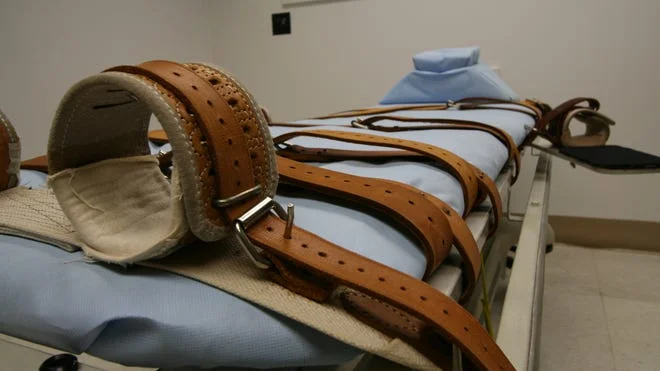
Florida’s Death Penalty Dilemma: What’s Fueling the Rapid Rise in Executions?
Florida is making headlines in 2025 with a surge in death penalty cases, raising questions about the state's approach to justice and its implications for the criminal justice system. As executions continue at an unprecedented pace, with plans for two more this month alone, experts and the public are debating whether this reflects a commitment to closure for victims' families or a rush toward irreversible decisions.
Governor Ron DeSantis has been at the forefront of this wave, signing death warrants that have brought the total to six executions so far this year. The latest developments involve Glen Rogers, 62, scheduled for lethal injection on Thursday for the 1995 stabbing death of Tina Marie Cribbs near Tampa. Rogers, who has boasted of multiple killings across the country, was also sentenced to death in California for another murder. His case highlights a pattern of cross-state crimes, with authorities arresting him in Kentucky while he was driving Cribbs' car—a detail that adds layers to the narrative of his evasion and capture.
Equally compelling is the story of Anthony Wainwright, 54, whose execution warrant was signed last week for the 1994 kidnapping, rape, and murder of Carmen Gayheart. Gayheart, a 23-year-old mother, was abducted at gunpoint from a Winn-Dixie parking lot in Lake City while loading groceries into her vehicle. Court records paint a harrowing picture: Wainwright and his accomplice, Richard Hamilton, had escaped from a North Carolina prison days earlier, stealing vehicles and weapons along the way. They forced Gayheart into her car, drove her to a remote wooded area, where she endured an hour of terror before being raped, strangled, and shot twice in the head with a .22-caliber rifle. A 1995 sentencing order described the crime as "extremely wicked, evil, and vile," emphasizing the victim's prolonged anguish.
This rapid succession of executions—six in 2025 alone, compared to just one in 2024 and six in 2023—signals a shift in Florida's enforcement of capital punishment. Analysts point to Governor DeSantis' tough-on-crime stance as a driving factor, with his administration prioritizing these cases amid ongoing appeals. Both Rogers and Wainwright have pending appeals that could potentially delay their fates, underscoring the legal complexities involved. Critics argue that this pace risks overlooking new evidence or procedural errors, while supporters maintain it delivers long-overdue justice for victims like Gayheart and Cribbs. The involvement of figures like Hamilton, who died on death row in 2023, further illustrates the interconnected web of these crimes and their lasting impact on communities.
In comparing these cases, one can't ignore the human element: the victims' families seeking closure, the perpetrators' claims of innocence or broader culpability, and the broader societal debate on the death penalty's role in modern America. Florida's actions this year could set precedents for other states, prompting discussions on whether swift justice equates to fair justice.
As Florida moves forward with these executions, the bigger question remains: Does this approach truly serve the public interest, or does it raise ethical concerns about the irrevocability of death sentences? This surge invites reflection on the balance between accountability and humanity in the justice system. We encourage readers to share their thoughts—do you support this rapid pace, or advocate for more reforms? Leave a comment below and help shape the conversation.